Accessing capital is one of our toughest challenges as black women-owned businesses. According to a report by Digital Undivided’s Project Diane, firms started by black women received only .0006% of VC funding raised by startups between 2009 and 2017. This number is offensively low! But, the reality is that venture capital (VC) funding often comes later in the funding process for a business. Black women have far less access to friends and family funds, personal wealth, or angel investments that often precede VC investment stages.
The gap in wealth we’ve described, paired with historical discriminatory practices in lending, and overall distrust in the lending industry perpetuate deep racial disparities in funding. These factors often mean that Black women-owned businesses bootstrap, going without critical services and support such as hiring bookkeepers, business coaches, or contractors. Negative differences between funding and business outcomes for Black- and White-owned businesses persist and even worsen over time. Overall, Black women-owned businesses tend to have lower sales, fewer employees, smaller payrolls, lower profits, and higher closure rates.
While capital is critical, it must accompany solid leadership and capacity for the business to succeed. With our Black and Bankable initiative, we work to become better businesswomen and more attractive to funders.
We compiled a glossary of must-know funding and investing terms to level up our bankability!
General
- Social Impact Venture – A social venture or social enterprise is a mission-driven business venture that prioritizes a social good along with business success.
- Business Grant – A business grant is money awarded to businesses in need. Unlike loans, grants don’t have to be paid off. The money is not being borrowed. There is no interest attached.
- Non-dilutable Funds – Non-dilutive funding refers to any capital a business owner receives that doesn’t require them to give up equity or ownership.
Accounting
- Balance Sheet – The term balance sheet refers to a financial statement that reports a company’s assets, liabilities, and shareholder equity at a specific point in time.
- Cash Flow Projections – Cash flow projection is a breakdown of the money that is expected to come in and out of your business.
- Profit and Loss Statement – A profit and loss (P&L) statement refers to a financial statement that summarizes the revenues, costs, and expenses incurred during a specified period.
- Profit Margins – the amount by which revenue from sales exceeds costs in a business.
- CAC – Customer acquisition cost (CAC) is the amount of money a company spends to get a new customer.
- Churn Rate – the annual percentage rate at which customers stop subscribing to a service or employees leave a job.
- Lifetime Customer Value – Customer lifetime value is the total worth to a business of a customer over the whole period of their relationship.
- MRR – Monthly Recurring Revenue is the predictable total revenue generated by your business from all the active subscriptions in a particular month.
Enjoy Exclusive Privileges!
Debt
- CDFI – CDFIs are banks, credit unions, or other lending institutions that accommodate people who are traditionally locked out of financial systems.
- Business Credit – Business credit is your business’s ability to borrow. Your business credit score influences your access to credit products such as credit cards and loans, giving credit agencies, lenders, vendors, and suppliers an indicator of how you handle your debts and your likelihood of paying them on time.
- Collateral – Collateral is an asset that a lender accepts as security for extending a loan. If the borrower defaults, then the lender may seize the collateral.
- Debt Financing – Debt financing on the other hand does not require giving up a portion of ownership.
- Underwriting – Underwriting simply means that your lender verifies your income, assets, debt, and property details to issue final approval for your loan.
Equity
- Angel Investor – Angel investors are usually individuals that specialize in financing early-stage businesses.
- Cap Table – A capitalization (cap) table lists who owns what in a startup. It lists the company’s shareholders and their shares.
- Convertible Note – A way for seed investors to invest in a startup that isn’t ready for valuation.
- Crowdfunding – The practice of funding a project or venture by raising many small amounts of money from a large number of people, typically online.
- Data Room – Data rooms are secure spaces where confidential documents can be kept and only read by people authorized to access the room. Investors may request access to a founder’s data room to see the company’s business financials and other key documents.
- Due Diligence – a comprehensive appraisal of a business undertaken by a prospective buyer, especially to establish its assets and liabilities and evaluate its commercial potential.
- Equity Financing – Equity financing is the process of raising capital through the sale of shares (ownership in the company). Equity financing carries no repayment obligation and provides extra money that can be used to grow a business.
- Financing Round – A round financing is funding that a startup receives from private equity investors or venture capitalists.
- Pitch Deck – A pitch deck is a brief presentation that gives potential investors or clients an overview of your business plan, products, services, and growth traction.
- Pre-Money – A pre-money valuation refers to the value of a company before it goes public or receives other investments such as external funding or financing.
- Pre Seed – Known as “pre-seed” funding, this stage typically refers to the period in which a company’s founders are first getting their operations off the ground.
- Post-Money – Post-money valuation includes outside financing or the latest capital injection.
- SAFE – A simple agreement for future equity (SAFE) is a financing contract that a startup company may use to raise capital in its seed financing rounds. The instrument is viewed by some as a more founder-friendly alternative to convertible notes.
- Series A – Series A financing is a reference to the first round of financing undertaken for a new business venture after seed capital.
- Series B – Series B financing is the next stage of funding after the company has had time to generate revenue from sales. Investors have a chance to see how the management team has performed and whether the investment is worth it or not.
- Valuation Cap – A valuation cap is a ceiling imposed on the price at which a SAFE will convert to stock ownership in the future. It is the maximum valuation at which an investor can convert a SAFE into equity: a pre-negotiated amount that serves to “cap” the conversion price once shares are issued.
- Venture Capitalist – Venture capitalists are typically a group of professional investors that will invest in more developed companies to help guide their strategic growth.
Visit https://www.ycombinator.com/library for a SAFE template, and more resources and tools.
At Sistahbiz, our vision is a world where racial equity gaps in entrepreneurship don’t exist. We provide Black women entrepreneurs with free and low-cost coaching, training, technical assistance, access to capital via our loan and grant funds, and a community that understands their journey in entrepreneurship firsthand. We aim to increase the number of black women entrepreneurs who own profitable, scalable, sellable businesses. We work daily to create cohorts of Black women millionaires annually. Join our Power Network now!

